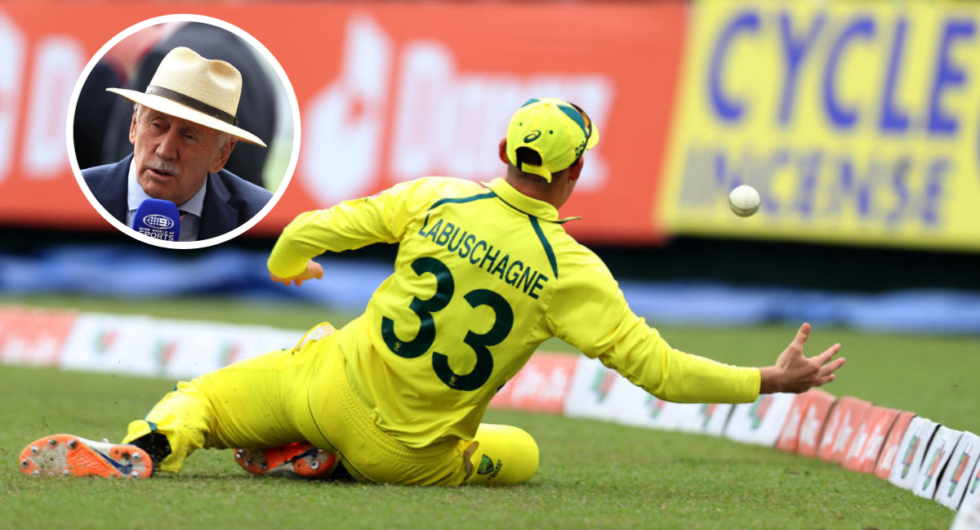Ian Chappell proposes significant change to boundary law to speed up pace of play

Ian Chappell has called for a major change in the boundary law in order to increase the pace of play.
In a column for ESPNCricinfo, Ian Chappell has suggested signalling boundaries only when the ball comes into contact with the boundary rope instead of worrying about the fielder touching the rope while being in contact with the ball.
“Why aren’t boundaries signalled only for balls that hit the rope rather than allowing pointless replays that look at the whereabouts of a fielder’s feet or hands?” he asked.
This was a part of several other suggestions that Chappell made to facilitate the speeding up of the game. “The pace of play in Test cricket is abysmal,” Chappell wrote. “It’s slowing every day and nothing is being done to improve matters.”
According to the current Laws of Cricket, a boundary is awarded to the batting side when the ball is grounded beyond the boundary. “Grounded beyond the boundary” is defined as the ball touching
- “the boundary or any part of an object used to mark the boundary”,
- “the ground beyond the boundary”,
- “any object that is grounded beyond the boundary”,
- “a fielder grounded beyond the boundary”, or
- “a fielder who after catching the ball within the boundary, becomes grounded beyond the boundary while in contact with the ball, before completing the catch.”
In simpler words, boundaries can still be awarded to the batting side if a fielder comes into contact with the rope and the ball simultaneously, which is what Chappell has raised an exception for.
Athleticism on the field has steadily improved over the years, and slides and dives to save to stop the ball from going into the boundary have become commonplace. This has led to an increase in the time required to check for boundaries in close cases where the fielder might have been in contact with the ball and the rope at the same time.
Chappell’s suggestion might have some merit, particularly in the case of Test cricket, where the extra run saved or conceded may not be as valuable as it is in limited overs cricket. However, it will require significant rewording of the Law, and may also lead to the extinction of relay catches and other pieces of athletic brilliance which the current boundary laws allow.
Chappell also suggested that administrators need to take the initiative to speed up play in Test cricket. Batters should not be allowed to meet during overs, drinks should not be allowed outside the stipulated drinks breaks except in extreme conditions, nor should there be frequent changing of equipment. He also questioned the increasing number of reviews being allowed to teams and the time being wasted on them.
Subscribe to the Wisden Cricket YouTube channel for post-match analysis, player interviews, and much more.

